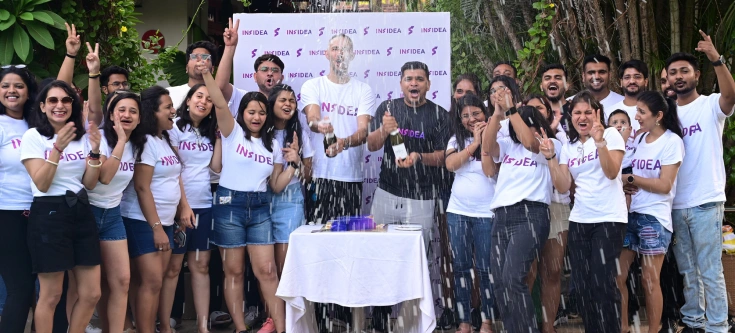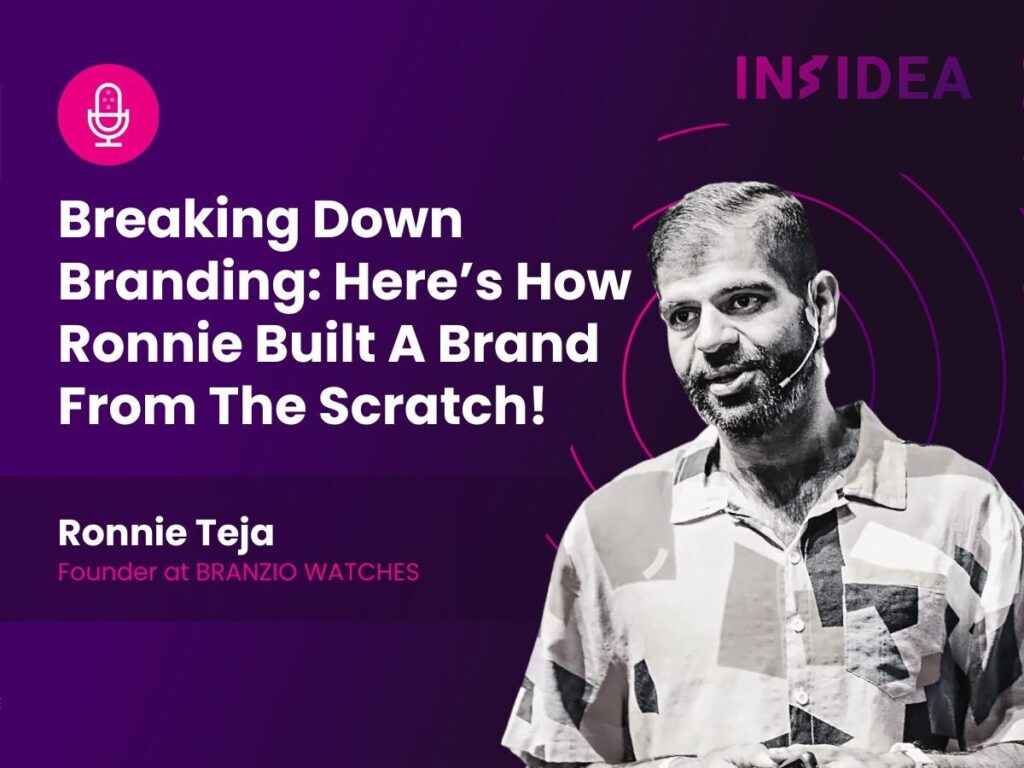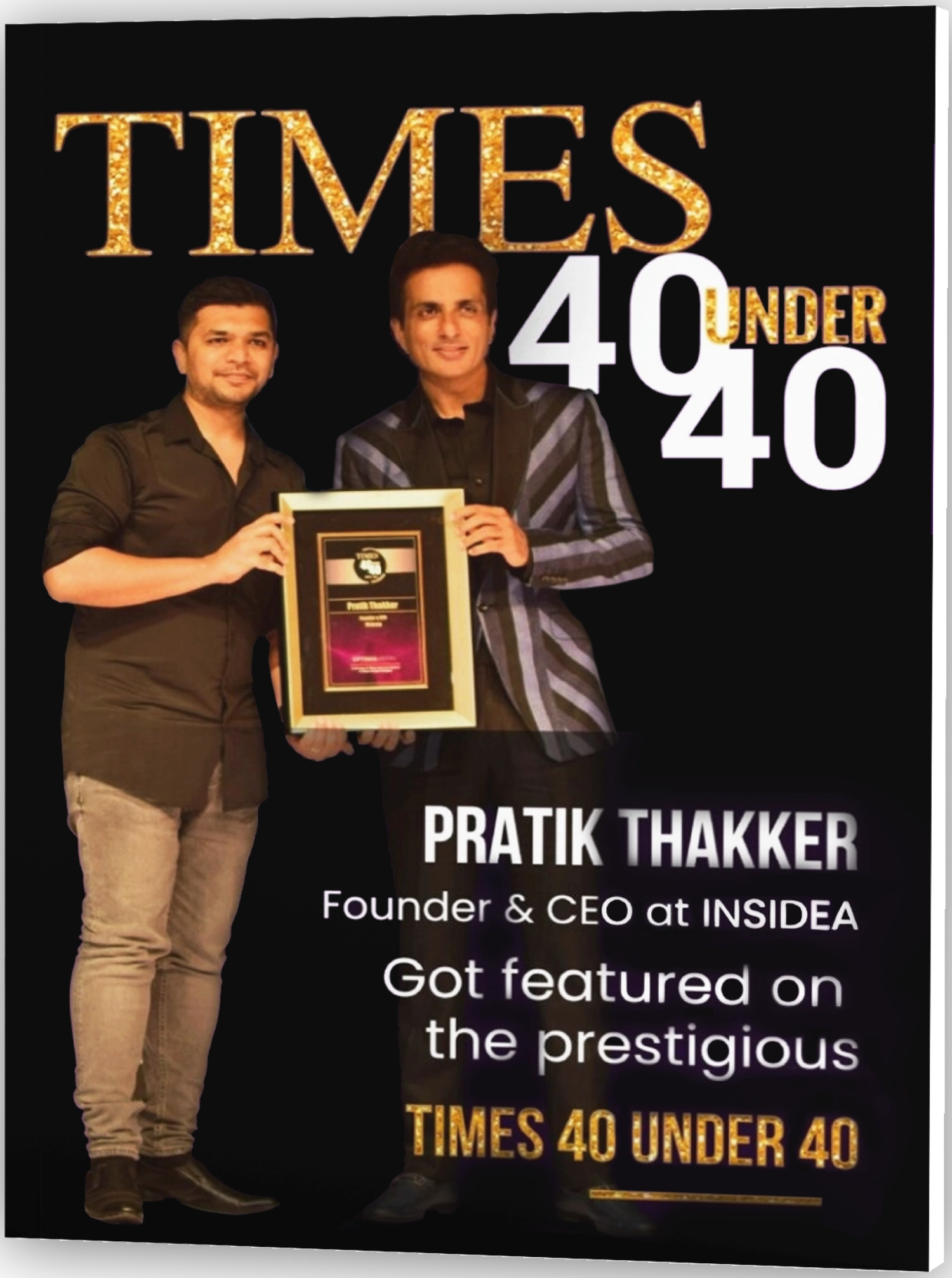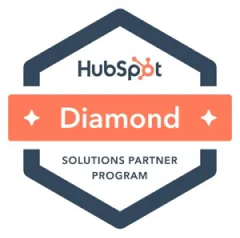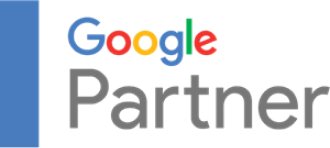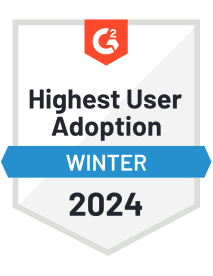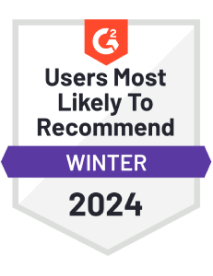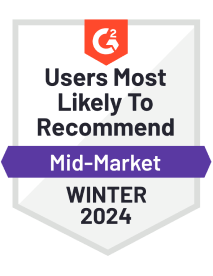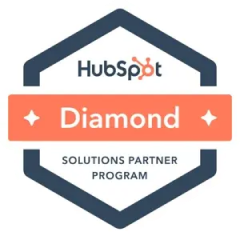Welcome to SaaS Unlocked, the podcast where we delve into successful entrepreneurs’ minds and uncover the secrets to their success. In today’s episode, our founder Pratik is excited to speak with Ronnie, a successful online business owner who started out by testing various online ventures. Through his hard work and determination, Ronnie has built a profitable business and he’s here to share his insights with us. So sit back, relax, and let’s get started!
You can watch the full episode on INSIDEA’s YouTube Channel and on Spotify.
But if you are more into reading than watching, HERE YOU GO!
Pratik
Welcome to ‘SaaS Unlock’. I’m bringing you amazing guests from across the globe. This guy is very special. He is an Indian based out of Canada but now settled in Thailand. Very a unique story of Ronnie and met him like twice but I already feel that and that vibe that any entrepreneur might possess. So he’s a great people person. Welcome Ronnie to the show. Very warm regards from the other side of the world where it’s too cold and you are enjoying Thailand.
Ronnie
Yeah, thanks man. I really do appreciate. Thanks pratik. Thanks for having me a really well speaking, Speaking of the connection, I definitely think that from the first time that we spoke it’s definitely been there. You’re from my hometown of Mumbai, definitely appreciate that the warm welcome and you know the the hometown connection there with you for sure.
Pratik
So, I was checking on your brand name ‘Branzia watches’. You are into e-commerce. You are an entrepreneur, you are a marketer. You did a lot of things in your career, and you ended up like right now in one of your ventures that’s Branzia. Would love to learn more about how you started it, what inspired you to come up with this product.
Ronnie
Sure. You wanna know the honest truth, man? Immigration’s a bitch. Like, I’m gonna, be super honest with you and with the crowd. The thing is, so we had a we had a decent, decent life in India, right? Definitely quite lucky in my upbringing. One to the right boarding schools, etcetera, etcetera. But when you immigrate to a new country, you’re everything. Everything changes, right. So so imagine, you know, we, we, we moved from India, we moved to Canada. Super Lucky, appreciate everything. And I call him the golden ticket because you get to move.
Ronnie
To a different country and get to hit the reset button of your life. That’s the upside. The downside is nobody has told. What nobody tells you is that no matter what your qualifications were in India or what you might have done, they’re not recognizing this new country, right? So, for example, if you’re a doctor, lawyer, engineer, whatever you’ve done in India, good for you. When you move to Canada, certain things are not of course, recognized. So when I moved with a family of four living in somebody’s basement, like a one bedroom basement, I used to, I used to work three jobs.
Ronnie
One of them was speaking.
Pratik
That reminds of my story as well!
Ronnie
Yeah, I know. Exactly right. So it’s like, yeah, I used to work three jobs. We had to make rent. I mean not that rent was much, it was still $600.00 Canadian, but for a family of four that you know, we converting rupees to dollars and all that, it was a lot. So. So I found the one thing that kept me motivated, which was essentially money. So if I want to be like super brutally honest with you, what drove me, what drove me to start my journey was essentially. Attack of wealth accumulation to say look whatever I do, I just want to make sure that I don’t end up the way in in the same streets as I was when I had moved to Canada. So you know I experienced this sort of more dust. They do changes. And that’s how I I I learned online marketing. I’m Charlotte. I guess I’m a child of the Internet and we both are. And you know talk herself. Online marketing doing a Google ad scores, watching YouTube videos reading. They didn’t even have YouTube videos back then. There was like just reading content online on Google and everything else. And then.
Ronnie
You know, squeaking my way into working for HSBC or anything else. But the interesting part is, you know, I I suck my teeth into online marketing, let’s say retail etail at Best Buy, which is quite interesting because every morning when I got to the office at 8:00 AM, they would essentially be 5 campaigns waiting for me to be trafficked. And I had a budget of five and a half, $1,000,000, right? So every day I’ve got to make mistakes on some other, some other person’s coin, right? Which was best buys coin or Sony’s coin or something else?
Ronnie
I’ve got to learn everything about Facebook ads, Google ads, Instagram ads, everything else on somebody else’s point, right? But I work from 888 AM to 8:00 PM, right? So in a in a couple of years, I had accumulated something to the tune of about 5-6 thousand hours of experience. And at that point in time we say, look, you know, maybe I want to try something else. Maybe I want to try a different venture. Maybe I want to try and go freelance. Tried all that stuff. Fail at it miserably. Try to start an ad agency.
Ronnie
Related miserably tried to start like a couple of other things didn’t really work out and then I read somewhere that the the the margins on watches are about 80%. So that’s how I started. In the watch Business Today we own portfolio 15 different sites. Some of them what is some of them are in software and some of them are in different niches, some of them are content sites, some of them are ecommerce sites, some of them are you know a mix of both and so here we are you know 60 plus employees completely remote company for over a decade this is MPs, so long time.
Pratik
So all of this watches that you have on your site is customly designed by your team?
Ronnie
Yeah, yeah, for sure. Like these are all custom made custom design custom. We started designing them every I think every not and I think I know that every year we have a new, we have a new range that comes out, there’s a new drop and everything is just that. That’s how we work. We work on a cycle, we make Quartz watches, sports watches. The reason why it just sports because sports has the lowest barrier of. Entry for watches. So if you, if you, if you don’t know much about watches and if you want to get into the watch, you’re like, hey, look, this piece looks good. It looks flashy enough. I’m going to buy it. There’s a, there’s a certain price point of a customer that we go up there, which is the $100 customer, right. They see it on the gram. They don’t have to think twice about it. And they’re like, OK, I’m just gonna buy it. It looks good. It goes with my wrist and I’m happy to do so. It makes sense. Yeah. Yeah. So that’s, that’s who we basically cultivated to. That’s who we go after, you know, that’s how it is.
Pratik
When when did you? Start this product and ecommerce site
Ronnie
10 years ago.
Pratik
Wow.
Ronnie
Yeah, it’s been awhile, man. No, not 10 until like 20. Well, no, no, eight, sorry, eight years ago. So 2015, January of 2015
Pratik
15 through your success journey like what were the initial days look like?
Ronnie
There is no success. I wish there was a success, man. It’s like, it’s still like there’s a lot more stuff to be done. But you know, you gave me too much credit. I can tell you my mistakes because I think when I do chat with people, I think it’s pretty interesting to talk about mistakes before we talk about successes. First mistake that I ever made was I tried to do everything myself and never got to delegate. I didn’t hire fast enough because six months into my business, I was the person who was doing my own accounting. I was the person doing customer service. I was the person doing all the media buyers. I was the person doing sourcing, designing, end to end everything. There was just one person that was me, right? And that month #3 had basically burnt out.
Ronnie
And so I kept trying to push myself. I said yeah, I can do it, I can do it, but it’s not really ideal, right? So mistake number one was not having fast enough because I believe if I had hired faster I would have definitely been able to scale a lot quicker. The second thing was, which I’m, I’m happy to share with you is I didn’t hire right, right. I definitely took people for took people at their word which I’m sure every everybody does. But the second part which is completely my mistake is I didn’t set the goal. They didn’t have right systems of monitoring.
Ronnie
I didn’t have the right goal sort of systems in place to say, look, these are the goals, these are, this is what we need to achieve and this is where we need to go with it, right. I just said, hey, here’s the here’s what we need to do and I’ll just let you go and execute it. At the end of the day, there was no follow up. There was a system for of management or performance reviews or anything else and that definitely was on me, right. And you know, six months down the line, of course you see all the customer reviews and you’re like, what the hell going on, blah, blah, blah. And then all of a sudden you like, holy shit, are screwed up pretty bad. And because the people.
Ronnie
When my employees came, came to me, they said you never told us, right this.
Pratik
Important aspect, right? Because thank God I learned this early in my journey while I was working in a job. So I was growing my team, right. So like making sure setting the expectation right for your employees and setting the KPIs and you measure that like you know with them every week to make sure that you’re helping them enough to succeed. It’s very crucial for any business. Thank you for sharing that.
Ronnie
Yeah, for sure. And that’s where they went wrong, 100%.
Pratik
What would what advice would you give someone if somebody is looking to start? Like you know there are a lot of products out there people want to be in ecommerce industry. What are the key things that you would consider if you want to start over again?
Ronnie
Well, yeah. I mean, look, there’s a couple of things to look at, right. Number one is, do you want to niche down? Everybody talks about niching down, right? So what happens when you start niching down is you, you basically are you, your audience gets smaller and smaller and smaller and smaller. Like I I believe that. OK that’s really good if you, if you’re in a certain if there’s a certain need for it, right. For example if you’re talking about a certain type of a watch you know it’s really good if people only like a certain sort of sort of a watch, which is, which is pretty good. The other thing that I or maybe like you know like there was this guy I think who I met he was selling on Amazon and what he was doing was he was selling you know the this this thing you put in the call off your shirt and it keeps your shirts upright. Super interesting, right. You made $1,000,000. You’re doing that very niche product.
Ronnie
Pretty good. However, for me, I think I, I, I, I, I would advise against it because, you know, you, you’ll Max out your niche at a certain point in time. So that means you can only scale. But you’ll, you’ll hit, you’ll hit a there’s a ceiling level to that right. And then you will start expanding. But what I would say is, you know, go abroad, figure out what you know who your audience is and then scale it, scale it from there. So there’s two different variations of it, right. I mean, even if you look at your Facebook audiences when you want to advertise today, Facebook says go broad. The earlier Facebook used to say go niche. So you know.
Ronnie
Put different perspectives that I’d be willing to offer.
Pratik
In terms of product right there are now, let’s say a lot of watch brands out there. So it’s competition everywhere, right? You will, no matter what niche you’re going. How do you deal with that as an entrepreneur?
Ronnie
There’s about three things that would differentiate you right #1. The quality of customer service is what defines who you are. If you are responding to customers one-on-one every day, as a founder, it’s always a good idea, right? If you are interviewing your customers once a month your top ten just randomly pick up your phone call 10,15, 20 customers see what what what they up to what they love about you, what they don’t love about you. Find out where your what you know. I usually I usually take it as as a feedback where it’s saying people are like look I don’t like XYZ and I’m like OK that’s interesting or some people I’ve got your customers are always have an opinion right? So it usually helps you see things outside of your echo chamber because your team is your echo chamber the teams are going to tell you you’re wrong or whatever whatever because they just either they’re too polite. Why did they just do nice to you, right. So your customers will always be that sort of the, let’s say, let’s call them the people who who who will always challenge you, right. The other thing is always the criticism that your customers give you, right, constructive criticism. Let me, let me say that constructive criticism, that’s very important word because customers like the bitch.
Ronnie
Constructive criticism on how you can improve is extremely important, right. Everybody has an opinion. What you take out of that opinion is up to you, right there. The people will share their experiences etcetera, etcetera. You just it’s like a buffet, you pick and choose the things that are most relevant to you. I think the other thing in terms of competitive advantage that that would be extremely important is our operation is 24/7, 24/7, 365. We don’t call on Christmas, we don’t close on New Years. We work every day like I work on. Like for me if I have to show up for work, I find comfort in.
Ronnie
Bring up to work, to for work on weekends. I love it, right? Some people right now, I can’t do it. But The thing is, I don’t expect my employees to come in on weekends. But somehow they always there. Makes sense. I don’t. I don’t post them. I don’t want them to. I hope they have a life, they have a family, they have everything. It’s up to them, right? But if they decide to work, that’s up to them. They like it. Some people find comfort and work like I do. So.
Pratik
That’s how you know startup world is. And people are now used to this culture. Because at the end of the day, as a business owner you are 24/7 percent, but sometimes your customers might need you and you’re available on the weekend.
Ronnie
Exactly.
Pratik
That that goes long way. It helps like, you know, build stronger bonding between employer and employee. And yeah, you can rely on.
Ronnie
Those kind of, but I’ve never asked them to come in. Please keep this in mind. I don’t want them to come in. I don’t. I would prefer they not work. I don’t want burnt out. I don’t want Muse. I want horses right at the end of the day. But if they come in, it’s up to them. It’s their prerogative, I mean. I get told, you know, people have an opinion of my employees working on certain days, but it’s not me who who essentially would like that to happen. It’s a good, it’s a good thing. Like a makes me happy. But you know, it’s really.
Pratik
Great. That you have so.
Ronnie
Yeah, I’m lucky man, 100%.
Pratik
So there’s one thing, right the technology is changing day by day and specifically like when it comes to devices, watches have been digital. What do you think the product holds for the? Future that industry serves.
Ronnie
Watches are gonna go forward and we’re gonna go take a leap back. I’ll speak a little bit about the watch market. The watch market for the last two years has been extremely hot. Not quartz watches, there’s talk of mechanical watches, right. So anything that’s new, shiny the Rolex Daytona, blah, blah, blah, blah, blah. They were overpriced. So Rolex Daytona, for example, on retail cost about 17, but there were none available. So it’s like, like it’s like the used car market, right. So it was extremely, they were extremely rare. So they were pricing it at about 40-50k. Now they started to come down and guess what one type of what that is always consistent. I’ve always held value which is your vintage watches. So watching thirty, 40s, fifties, 60s new vintage whatever, right. They might have not have cost much. They might have cost you 9 to 12 K and they’ll say consistent at that at that level. Now the thing about digital watches versus analog watches is people who like analog watches will love analog watches no matter what, right. It’s it’s a deep dark hole with it. People who like like for example all like I’m not waiting one now, but sometimes I’ll.
Ronnie
I will wear a smartwatch, but I find comfort in wearing an analog watch. It’s up to personal preferences, right? So one of my friends is a golfer. He loves wearing a garment on the golf course because he wants to measure how far the field is, etcetera, etcetera, etcetera. How far he has to drive. I I believe every watch has a purpose. So if you’re going for a, you know, black tie event, you probably want to bring out a formal watch. If you are doing something on it, you know, a tool watch, which is your daily way, you can just use normal watch. Yeah.
Pratik
So do you think that? Your company is also come up with like any digital watches.
Ronnie
Forward. No, man. No, not my thing. I mean you can, you can get them. If you go to Shenzhen and you go to Hatching Bay, you can get them by the kilo for about 100 bucks. I know, I know how it works. It’s like there’s no differentiation there. It makes sense. I mean 15 years ago, sure. I mean, you know, you have to develop a watch, you have to compete with the likes of Fitbit, you have to compete with the likes of garment, etcetera, etcetera of even. So Fossil is a good example of that. Fossil went from being a. Analog watch company to being a hybrid watch company. So fossil some of the fossil watches that you see on the market, they actually analog watches that double out as digital watches.
Pratik
Yeah, my wife. I remember.
Ronnie
Yeah. Yeah. There you go. So very interesting choice there, right. But Fossil is a two $300.00 brand, right. Remember from the one true piece of jewelry that men get to wear in their lives is a watch. Yeah. So that’s why you know the, the sign of success for us, you know, when we signed our first big contract, could be a Rolex or Patek. And then, you know, it just goes. Then you, then you watch all gets, then becomes a disease because then you start researching all these mechanical watches and you’re like, Oh my God, I’m gonna hole now.
Pratik
So at the end of the day, you know, no matter how great your product is, no matter how big your problem is, you need to generate that demand right for your business. Sales are the number one thing that drives how do you reach out, reach to your customers. In last 10 years you’ve definitely tried all of the channels out there. What is something that worked really well for you and.
Ronnie
What I’m finding mid funnel, right. So most of the stuff that top of funnel is usually YouTube or Facebook ads and then bought a funnel for us and we stuck to it, right. There’s always this new thing about TikTok we test 20% of our budget is always for testing, right failures include TikTok. Such failures include such such brand names such as Tick Tock, Pinterest. You know all the stuff we tried didn’t really work for us try to influence it worked really well for us. Scaled it triple, quadruple, all investments in there, Google, Google. So you have your bread and butter. And better usually being top of funnel as Facebook, YouTube, bottom of funnel would be Google search and shopping, right. Mid funnel would be stuff like influence, right. So people, so now you think about this, right it takes about 14 to 20 times before and the conversation pieces from when I started to now, they just keep increasing the touch points of how many times you need to be in a customer’s top of mind before they actually come and buy. So I need to be able to reach out to them 20 times today versus 10 years ago when I just had to reach out to them six times. So, you know, there’s a, there’s a big difference in how.
Ronnie
That language is going on today.
Pratik
Well, so the frequency of REACH should be 20 times before they even like make a purchase.
Ronnie
Correct. That’s messed up, man. Wow. That’s why retargeting plays a really important role. Like for SAAS founders, for ECOM founders, for any sort of founder. It’s like you need if somebody ever visits your website, that means they’ve shown some intent, treat them as proper funnel customer, hit them as hard as you can, you know, maybe make a nurturing pipeline of how that goes, you know, customer visit your website, never purchased, but you know what sort of pages they went to. And they’re like, OK, maybe they want to get targeted with their video ad. And then could be through a video sales letter. Then it probably goes down, you know, to to you show them reviews of your ad, showing reviews of your your product or your service. And then probably they’ll probably ask their friends, they then they’ll go research G2 or trustpilot and all that. And then they’ll ask their friends about it and then they’ll probably be like, OK, now I’m ready to purchase. And this is for $100 product. Imagine what’s happening to people who are selling for $5000 products.
Pratik
Wow. So you’re saying the most important channel for your brand is paid advertising?
Ronnie
Correct. Yeah. And SEO now, so like SEO we we drive about 1.5 to 2,000,000 clicks just on organic traffic. So which is pretty good. So it’s 333 clicks but that but you know, but the thing about SEO is it’s very consistent. So you have to stay extremely consistent and the amount of content you’re putting out, how, how often you putting it out, what are you optimizing towards and what that sort of process looks like. I mean we’ve been, we’ve been trying to scale SEO. We usually buy content sites, we do roll ups of content sites and we put them into the main site and then we scale it. So we started. about SEO about three years ago, three years ago, we used to get about maybe 10,000 clicks organically. Do we get about 2 mil? So big difference.
Pratik
This is a great, great growth man on SEO front.
Ronnie
Yeah, yeah, but man, it’s three or three years, three years and 10 people working on it consistently. So it’s like when people say ohh after one month, ohh, I haven’t gotten any uplift. I’m, I’m like, trust me, you know, it takes a long time, but people give up easily, right? They don’t see instant rewards.
Pratik
So now this part of the session is more of like rapid fire, I’ll ask you. And you have like you know you have to answer that instantly.


